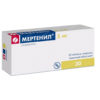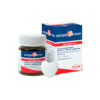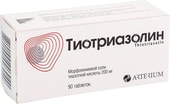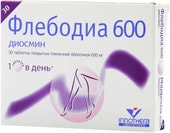Co-Sentor tab. p / captivity. about. 100mg/25mg in bl. in pack. №10х3
$19.00
Co-Sentor Tablets: Comprehensive Information on Dosage, Composition, and Side Effects
Co-Sentor Tablets are a combination medication used to treat high blood pressure (hypertension). This detailed guide provides a comprehensive overview of the drug’s composition, dosage, side effects, interactions, and precautions.
Key Features:
- Active Ingredients: Losartan potassium and hydrochlorothiazide.
- Dosage Forms: Film-coated tablets in three strengths: 50/12.5 mg, 100/12.5 mg, and 100/25 mg.
- Mechanism of Action: Losartan, an angiotensin II receptor antagonist (ARB), blocks the effects of angiotensin II, a hormone that constricts blood vessels. Hydrochlorothiazide, a thiazide diuretic, increases urine production, reducing blood volume and lowering blood pressure.
- Indications:
- Treatment of high blood pressure, especially when other medications haven’t provided adequate control.
- Reduction of cardiovascular disease risk and mortality in patients with high blood pressure and left ventricular hypertrophy.
Composition and Appearance:
Co-Sentor® film-coated tablets, 50/12.5 mg:
- Appearance: Round, biconvex, orange film-coated tablets debossed with “C23” on one side.
- Diameter: About 9 mm.
Co-Sentor® film-coated tablets, 100/12.5 mg:
- Appearance: Oval, biconvex, yellow film-coated tablets debossed with “C25” on one side.
- Other side: Without engraving.
Co-Sentor® film-coated tablets, 100/25 mg:
- Appearance: Oval, biconvex, orange film-coated tablets debossed with “C24” on one side.
- Diameter: Longest diameter about 15.5mm, shortest about 8mm.
Excipients: Magnesium stearate, pregelatinized starch, lactose monohydrate, microcrystalline cellulose.
Film Shell: Varies depending on tablet strength and color (containing iron oxides, sunset yellow, talc, macrogol, titanium dioxide, and polyvinyl alcohol).
Dosage and Administration:
- Dosage: Typically, the initial and maintenance dose is 1 tablet of Co-Sentor® 50 mg/12.5 mg per day. The dose may be increased to 1 tablet of 100 mg/12.5 mg or 100 mg/25 mg per day if needed.
- Maximum Dose: 1 tablet of Co-Sentor® 100 mg/25 mg once a day.
- Administration: Take orally with a glass of water, regardless of meal times.
Side Effects:
- Common Side Effects: Dizziness, headache, cough, abdominal pain, nausea, diarrhea, muscle cramps, back pain, fatigue, asthenia.
- Less Common Side Effects: Anemia, angioedema, gout, insomnia, anxiety, depression, blurred vision, vertigo, hypotension, palpitations, skin rash, joint pain, frequent urination, impotence.
- Rare Side Effects: Anaphylactic reactions, hemolytic anemia, agranulocytosis, aplastic anemia, hyperkalemia, hyperuricemia, hypokalemia, jaundice, pancreatitis, necrotizing angiitis, respiratory distress syndrome, and other serious conditions.
Precautions and Contraindications:
- Contraindications: Hypersensitivity to losartan or hydrochlorothiazide, untreated hypokalemia, hypercalcemia, severe liver failure, severe renal failure, anuria, severe arterial hypotension, hypovolemia, pregnancy, and lactation.
- Cautions: Use with caution in patients with bilateral renal artery stenosis, hypovolemia, hyponatremia, hypomagnesemia, hypokalemia, connective tissue diseases, diabetes mellitus, gout, bronchial asthma, history of allergies, hyperuricemia, hypercalcemia, mild to moderate hepatic insufficiency, aortic or mitral valve stenosis, obstructive hypertrophic cardiomyopathy.
Drug Interactions:
Co-Sentor® can interact with various medications, including:
- Other antihypertensive drugs: Increased risk of hypotension.
- Potassium-sparing diuretics: Increased risk of hyperkalemia.
- Lithium preparations: Increased lithium levels.
- Non-steroidal anti-inflammatory drugs (NSAIDs): Reduced antihypertensive effect, potential renal impairment.
- ACE inhibitors and Aliskiren: Increased risk of hypotension, hyperkalemia, and renal dysfunction.
- Hypoglycemic agents: Dose adjustments may be necessary.
- Metformin: Increased risk of lactic acidosis.
- Barbiturates, narcotic drugs, antidepressants, ethanol: Potentiation of the antihypertensive effect.
- Other drugs affected by potassium levels: Monitoring of serum potassium and ECG is recommended.
- Drugs causing pirouette tachycardia: Caution is advised due to the potential for hypokalemia.
- Calcium salts: Increased serum calcium levels.
- Carbamazepine: Risk of symptomatic hyponatremia.
- Iodine-contrast agents: Increased risk of acute renal failure.
- Amphotericin B, corticosteroids, ACTH, laxatives: Exacerbation of electrolyte disturbances.
- Salicylates, methyldopa, cyclosporine, digitalis preparations: Potential for adverse interactions.
Important Notes:
- Pregnancy: Co-Sentor® is contraindicated during pregnancy.
- Breastfeeding: It is recommended to stop breastfeeding while taking Co-Sentor®.
- Children: The safety and effectiveness of Co-Sentor® in children and adolescents have not been established.
- Elderly: Dose adjustments may not be necessary.
- Renal Impairment: Dose adjustments may be necessary.
- Hepatic Impairment: Use with caution in mild to moderate impairment; contraindicated in severe impairment.
- Fluid and Electrolyte Disturbances: Monitor for signs and symptoms, especially in patients with diarrhea or vomiting.
- Ethnic Differences: Co-Sentor® may be less effective in lowering blood pressure in blacks.
Consult your healthcare provider for personalized advice on the use of Co-Sentor® and to ensure its safety and effectiveness in your specific case.
This information is intended for educational purposes only and should not be considered medical advice. Always consult with your healthcare provider for diagnosis and treatment of any medical condition.
| INN | LOZARTAN+HYDROCHLOROTHIAZIDE |
|---|---|
| The code | 46 371 |
| Barcode | 5 997 001 301 722 |
| Dosage | 100mg/25mg |
| Active substance | Losartan, hydrochlorothiazide |
| Manufacturer | Gedeon Richter Poland Co Ltd., Poland/Gedeon Richter Pls., Hungary, Hungary |
| Importer | IOOO Interfarmaks 223028 Minsk region, Minsk district, Zhdanovichsky s / s, ag. Zhdanovichi, st. Star, 19a-5, room. 5-2 |
Related products
Cardiovascular Health
Cardiovascular Health
 Free worldwide shipping on orders $99+
Free worldwide shipping on orders $99+  US: temporary delays — postal services aligning new import rules,
US: temporary delays — postal services aligning new import rules,  EU: 1–2 weeks,
EU: 1–2 weeks,  Worldwide: 1–4 weeks
Worldwide: 1–4 weeks 











